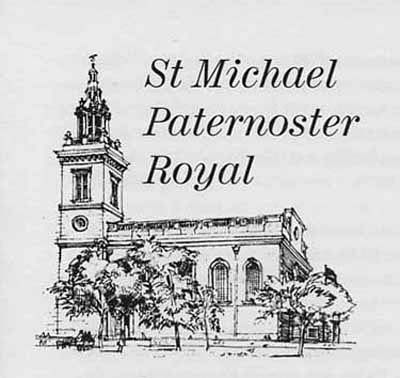 |
From the Thorley Archives
Sir Richard Whittington of Thorley
One of the most illustrious names associated with the village of Thorley is the legendary Dick Whittington. He is commemorated in the parish with Richard Whittington Primary School and the main road, Whittington Way. Who was this popular character so famed in pantomimes and what part did he play in Thorley's history?
Richard Whittington was born in the village of Pauntley, Gloucestershire in the 1350s. After an apprenticeship with the Mercer's Company he became a successful London merchant dealing in silks and velvets. He was favoured by King Richard II after selling him two cloths of gold for £11 and then not asking for payment. He subsequently made several loans to Henry IV and Henry V in return for lucrative trading concessions on the Continent.
As Master of the Mercer's Company he became aware of the social needs of the population of the City of London. Between 1397 and 1420 he held the office of Mayor of London four times and his terms were characterised by many innovative social reforms. He financed drainage systems for areas around Billingsgate and Cripplegate, he provided some of the first public drinking fountains and in St Martin Vintry parish gave a public toilet that was cleansed by the Thames at high tide. He also provided accommodation for his apprentices in his own house. Whilst Mayor, he passed a law that forbade the washing of animal skins by apprentices in the River Thames in cold, wet weather. This dangerous practice had cost the lives of many young boys either through hypothermia or being dragged away by the strong river currents.
|
|
|
Sir Richard Whittington's church rebuilt by Sir Christopher
Wren
|
Richard Whittington's philanthropic ideals extended to many building projects. These included the rebuilding of his parish church, St Michael Paternoster Royal, the founding of almshouses, the paving of the Guildhall and improved facilities at Newgate Prison. He also financed a new wing at St. Thomas' hospital for unmarried mothers. After his death the Mercers' Company administered his estate, estimated at £5 million in modern terms. Some of its trusts are still in operation today.
|
|
|
Imaginary portrait of Sir Richard Whittington
at the Mercers' Company |
It is because of this altruism that Sir Richard Whittington became a folk hero, remembered as 'Dick' Whittington. His good deeds, his black cat and his returning from Highgate Hill at the summons of Bow Bells were romanticised in a play first printed in 1605.
As for Thorley's role in the story we have no tangible sign of Sir Richard Whittington's good works, only a historical record to say that he was a joint owner of the Manor of Thorley around 1400.
Unfortunately there is no record that he ever lived at Thorley Hall or even visited the parish. We do know however that Thorley Manor was quite a prosperous sheep farm at the time, judging by the fine examples of 14th century architecture in the church.
Bill Hardy
September 2004
With acknowledgements to Margaret Blascos who, with her class, researched the life of Sir Richard Whittington for the first birthday of Richard Whittington School in 1978.